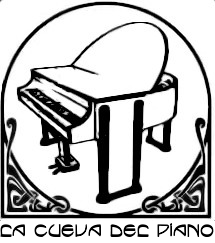The Ineffable
2. Fugue
I interpret Ravel’s Fugue as a symbol of death as our manifest destiny. This movement is especially compelling thanks to the mastery with which the composer crafted it as well as for its emotional depth. Acclaimed pianist Josep Colom once suggested that this fugue’s main theme—the principal melodic motif present in different versions throughout the piece—is as immutable and precise as the miniature clocks and mechanical toys that Ravel loved to collect. Meanwhile, the countersubject—a second motif also present throughout the fugue—weaves its melodies around the subject in a freer, fluctuating, subjective and intimate manner. In this sense, the fugue's subject could be an allegory of the relentless passing of time over which the countersubject evolves, encompassing the sorrow of experience.
The film displays the burials in mass graves of those who died in combat. Also seen are French soldiers imprisoned by their compatriots on charges of desertion and insurrection; these are men who rebelled against the suicidal strategies that they were ordered to carry out, chiefly during the battles of Verdun and the Somme. The French military authorities executed more than five hundred soldiers who refused to participate in imminent massacre.
The accompanying quote is a passage from The Waste Land by T.S. Eliot. This poem, comprised of more than 400 lines, breaks all sorts of narrative conventions: it is a dark compendium of references to various religions, countries, historic literary works, and cultural allusions; all intertwined in a poetic discourse that erratically shifts the narrator's voice, the spacetime framework, and even the language. The only common thread to be discerned is that of anguish and death. The Waste Land is a landmark of modernist literature that could very well be considered a present-day version of the Apocalypse.

|

|



